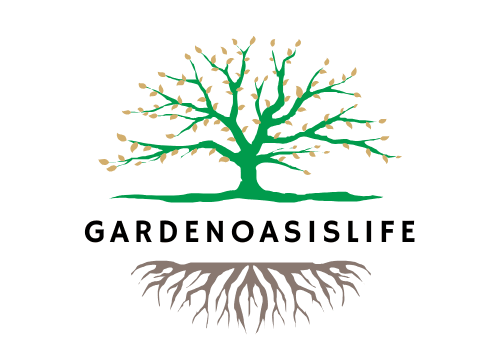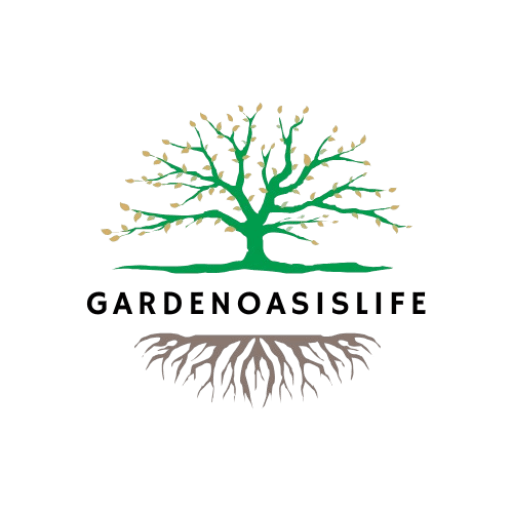Essential Garden Tools and Supplies for Every Gardener
Choosing the Right Garden Tools and Supplies

When it comes to gardening, having the right tools is essential. The right tools can make your gardening tasks easier and more enjoyable. Here’s how to choose the best tools and supplies for your needs.
Understanding Your Gardening Needs
- Assess the size of your garden.
- Identify the types of plants you want to grow.
- Consider your gardening style (e.g., vegetable gardening, flower gardening).
Quality vs. Quantity in Tools
- Focus on buying a few high-quality tools rather than many cheap ones.
- Quality tools last longer and perform better.
- Invest in tools that are comfortable to use and fit your hand well.
Essential Tools for Beginners
- Hand Trowel: Great for digging small holes and planting.
- Pruning Shears: Essential for trimming and shaping plants.
- Garden Fork: Useful for turning soil and mixing compost.
Remember, starting with the basics will help you build a solid foundation for your gardening journey.
Hand Tools Every Gardener Should Own

Gardening is much easier with the right tools. Here are some essential hand tools that every gardener should have:
The Versatility of the Hand Trowel
A hand trowel is a small but mighty tool. It’s perfect for digging small holes for planting seeds or transplanting young plants. Look for a trowel with a sturdy blade and a comfortable grip. Here are some key features to consider:
- Material: Stainless steel is durable and resists rust.
- Blade Size: A narrow blade is ideal for precision work.
- Handle Comfort: Choose a handle that feels good in your hand.
Why Pruning Shears Are Indispensable
Pruning shears are essential for keeping your plants healthy. They help you trim branches and remove dead flowers. Here’s why they are a must-have:
- Versatility: Great for various plants, from shrubs to flowers.
- Ease of Use: Look for a pair that feels comfortable and easy to operate.
- Durability: Invest in a good pair that will last for years.
Using a Garden Fork Effectively
A garden fork is great for breaking up compacted soil and turning compost. It’s also useful for harvesting root vegetables like potatoes and carrots. Here’s how to use it:
- Choose the Right Fork: Look for one with strong, thick tines.
- Technique: Push the fork into the soil and lift it to aerate.
- Maintenance: Keep it clean and store it properly to extend its life.
Remember, having the right tools can make gardening more enjoyable and productive. Invest in quality hand tools to help you succeed in your gardening journey!
Power Tools for the Modern Gardener
Gardening has evolved, and so have the tools we use. Power tools can make gardening tasks quicker and easier, allowing you to enjoy your garden more. Here are some key points to consider:
Benefits of Electric vs. Gas-Powered Tools
- Electric Tools:
- Quieter operation
- Less maintenance required
- Environmentally friendly
- Gas-Powered Tools:
- More powerful for heavy-duty tasks
- Greater mobility without cords
- Ideal for larger areas
Safety Tips for Using Power Tools
- Always read the user manual before operating any tool.
- Wear appropriate protective gear, including gloves and goggles.
- Keep your work area clear of debris to avoid accidents.
- Ensure tools are turned off and unplugged when not in use.
Top Power Tools for Gardeners
| Tool Type | Purpose | Recommended Use |
|---|---|---|
| Electric Hedge Trimmer | Trimming hedges and bushes | For maintaining shape |
| Cordless Leaf Blower | Clearing leaves and debris | Quick clean-up tasks |
| Gas-Powered Chainsaw | Cutting down trees or large branches | For heavy-duty cutting |
Power tools can significantly reduce the time and effort needed for gardening tasks, making them a worthwhile investment for any gardener.
Watering Solutions for Your Garden
Choosing the Right Garden Hose
When it comes to watering your garden, selecting the right hose is crucial. Here are some tips:
- Look for a durable rubber hose that can withstand wear and tear.
- Choose hoses with nickel-plated brass fittings for better durability.
- Consider the length you need; you can connect hoses for longer reach.
Benefits of Soaker Hoses
Soaker hoses are a fantastic option for watering your plants. They work by:
- Delivering water directly to the roots, which helps prevent evaporation.
- Reducing water waste by soaking the soil slowly and evenly.
- Being easy to lay out around your plants and garden beds.
Using Watering Wands for Delicate Plants
Watering wands are perfect for reaching plants in tight spaces. Here’s why they are useful:
- They provide a gentle shower of water, ideal for delicate flowers.
- The long handle allows you to water hanging baskets without stretching.
- Many wands come with adjustable flow controls to save water.
Remember, proper watering is key to a healthy garden. Make sure to adjust your watering methods based on the weather and the needs of your plants.
Protective Gear and Clothing for Gardeners

Gardening can be a fun and rewarding activity, but it also comes with its own set of risks. Wearing the right protective gear is essential for a safe gardening experience.
Importance of Gardening Gloves
- Protection from Cuts and Scrapes: Gloves keep your hands safe from sharp tools and thorny plants.
- Comfort and Grip: Look for gloves that fit well and allow you to grip tools easily.
- Water Resistance: Choose gloves made from breathable, water-resistant materials to keep your hands dry.
Choosing the Right Footwear
- Sturdy Shoes: Wear shoes with good support to protect your feet from heavy tools and sharp objects.
- Waterproof Options: Consider waterproof boots if you work in wet conditions.
- Non-Slip Soles: Ensure your footwear has non-slip soles to prevent accidents on wet ground.
Sun Protection Tips for Gardeners
- Wear a Wide-Brimmed Hat: A hat can shield your face and neck from harmful UV rays.
- Use Sunscreen: Apply sunscreen on exposed skin to prevent sunburn.
- Lightweight, Long-Sleeved Clothing: Opt for breathable fabrics that cover your arms and legs for extra protection.
Remember, taking care of your body while gardening not only makes the experience more enjoyable but also helps you stay safe and healthy.
Storage and Maintenance of Garden Tools

Organizing Your Garden Shed
Keeping your garden tools organized is essential for efficiency and safety. Here are some tips to help you:
- Use pegboards to hang tools and keep them visible.
- Label shelves and bins for easy identification of tools and supplies.
- Store larger items like wheelbarrows and ladders in a designated area to avoid clutter.
Cleaning and Sharpening Tools
Regular maintenance of your tools can extend their life. Follow these steps:
- Clean tools after each use to remove dirt and debris.
- Sharpen blades using a sharpening stone or file to ensure clean cuts.
- Oil metal parts to prevent rust and keep them functioning smoothly.
Seasonal Maintenance Tips
Different seasons require different care for your tools. Here’s a quick guide:
- Spring: Inspect tools for damage and sharpen blades before the gardening season starts.
- Summer: Keep tools clean and store them in a shaded area to prevent overheating.
- Fall: Clean and store tools properly to protect them from winter weather.
Proper storage and maintenance of your garden tools not only keeps them in good shape but also makes gardening more enjoyable.
Eco-Friendly Gardening Supplies
Sustainable Fertilizers and Soil Additives
Using eco-friendly fertilizers and soil additives is essential for maintaining a healthy garden. Here are some options:
- Compost: A natural way to enrich soil and recycle kitchen scraps.
- Organic fertilizers: Made from natural materials, they provide nutrients without harmful chemicals.
- Mulch: Helps retain moisture and suppress weeds while breaking down to enrich the soil.
Composting Tools and Techniques
Composting is a great way to reduce waste and create nutrient-rich soil. Here are some tools and techniques:
- Compost bin: A designated space for collecting organic waste.
- Aerator: Helps mix the compost to speed up decomposition.
- Thermometer: Monitors the temperature to ensure proper breakdown of materials.
Water Conservation in Gardening
Conserving water is crucial for sustainable gardening. Here are some effective methods:
- Soaker hoses: Deliver water directly to the roots, reducing evaporation.
- Rain barrels: Collect rainwater for irrigation, saving on water bills.
- Drip irrigation: Provides a slow, steady supply of water directly to plants.
Remember, every small step towards eco-friendly gardening contributes to a healthier planet.
Final Thoughts on Essential Garden Tools
In conclusion, having the right tools is key to enjoying gardening. Whether you’re just starting out or have been gardening for years, these essential tools will help you tackle any task with ease. From a sturdy wheelbarrow to handy pruners, each tool plays a role in making your gardening experience smoother and more enjoyable. Remember, it’s not about having every tool available, but rather focusing on quality and the basics that will last you a long time. So, gear up, get your hands dirty, and enjoy the wonderful world of gardening!
Frequently Asked Questions
What are the basic tools I need to start gardening?
To begin gardening, you should have a hand trowel, a garden fork, pruning shears, gloves, and a watering can or hose. These tools will help you with planting, weeding, and maintaining your garden.
How do I choose the right gardening gloves?
When picking gardening gloves, look for ones that fit well and are made from durable material. They should protect your hands from thorns and dirt while allowing you to feel what you’re doing.
What is the best way to maintain my garden tools?
To keep your garden tools in good shape, clean them after each use, keep them dry, and store them in a cool place. Sharpen blades regularly to make your work easier.
Are electric gardening tools better than gas-powered ones?
Electric tools are usually quieter, easier to start, and require less maintenance compared to gas-powered tools. However, gas tools might be more powerful for larger jobs.
How can I save water while gardening?
You can save water by using soaker hoses, which deliver water directly to the roots, and by watering early in the morning or late in the evening to reduce evaporation.
What should I look for when buying a garden hose?
When buying a garden hose, choose one that is made of durable material, is flexible, and has strong connectors. A longer hose will help you reach all areas of your garden.


